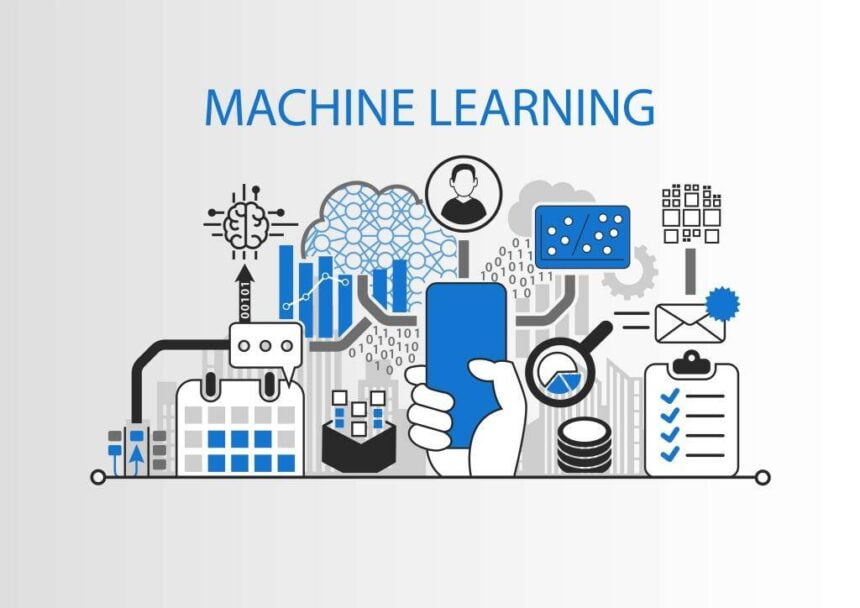Last year, Harvard Business Review published a great article on the ways that AI are changing contract management. Author Beverly Rich has said that AI and machine learning will be integral to contracts in the 21st Century.
Rich said that there are some challenges to utilizing AI for contracts. The biggest issue is that the majority of companies don’t retain data on their contracts. However, as a growing number of companies digitalize their contracts, they will have an easier time handling these processes.
Machine Learning is Redefining Business Contracts as We Head into 2020
Since businesses run on a foundation of contracts, mismanaged contracts can be one of the biggest causes of unnecessary losses. A disorganized contract management process might be due to companies keeping the same ad hoc methods in place that served the company well when it was a garage start-up, but they may no longer be a good fit for enterprise-level growth. A cohesive strategy behind your contract management process can help your organization avoid missed deadlines, expiration windows, logistical hang-ups, and increased liabilities that can hurt your company’s chances of success.
Machine learning is going to have an even more important role in these processes in the future. Swish Labs has talked about this in Medium. They said that machine learning will emulate human decision makers while processing contracts.
Read on for ways to improve how your company manages contracts with machine learning.
Documentation
An internal audit of your company’s processes for dealing with contracts will help identify points of vulnerability. Machine learning can be invaluable for conducting these audits. You can use big data to keep track of your company’s ability to meet certain benchmarks and create a machine learning algorithm that can automate essential processes.
You should review your company’s contract management strategy and analyze it for efficiency gaps. Then you can set an agenda with clear goals, which will be handled through machine learning automation technology. This might be different for every company. Maybe you’re dissatisfied with how much you spend, or you want to reduce liability risks, or you simply need to make the process more visible so you can have better information guiding future decisions.
Find out which contract categories need to be addressed with your machine learning interface, such as:
- master agreement
- service agreements
- production schedules
- NDAs
- contractor statements of work
- supplier contracts
Some companies never see one of these kinds of contracts, others might be drowning in them. It depends on what kind of business you’re running and the market forces dictating your needs. The ROI of your machine learning-based contract management protocol will depend on the number of contracts in place and their complexity.
Planning
Have a plan for how your business should be handling contracts. This falls in line with your goals, which should inform the improvements you want to make. At this stage, don’t worry about “how,” your purpose is to state parameters of how you’d ideally like things to run in a perfect world, then see how close the actual real-life procedure can live up to that ideal. Machine learning can help you understand the scope of your existing contracts and develop a plan to organize them better.
Goals for your machine learning framework might include:
- better organization
- a more streamlined processes
- less spent time
- fewer administrative errors
- avoiding duplication
- increased productivity
- more consistency
- less expenditure
For instance, one of your goals might reflect the speed at which your company’s expanding, such that you want procurement to be able to start from empty office space to a work-ready office within two weeks. Or perhaps you want the legal department to be able to review existing obligations in order to answer whether taking on a new contract won’t incur too much risk, and have that done within the space of a phone call.
While we’re planning, setting up a standard process can help a bit with streamlining. For example, the IT department and the HR department might go through two different channels of its acquisitions, using different ordering systems. You want a standardized system so that every time you solve a problem in the contract management process chain, you only have to solve it once.
Automation
If you’ve heard about the tremendous leaps that contract management software systems have made in the past few years, you’ve heard right. Contract management has also gotten a boost from recent Artificial Intelligence research, introducing the improbable collaboration of MIT engineers and Harvard Law graduates to create agile systems of business document management.
Instead of manual filing, contract management automation can scan in documents and store cloud-accessible data about them, which can be retrieved into simple graphs and charts. Having a panoramic view of your entire contract situation at the press of a key is not only possible with today’s technology but is becoming a standard in various industries.
Eliminating contract errors and miscommunications can save your company a surprising degree of resources. While nobody starts out in business thinking of contract management as an exciting subject, an efficient contract management process can make or break a company’s competitive energy.
Machine Learning is the Future of Contract Management
There are a lot of benefits of using machine learning in modern organizations. One of the unrecognized benefits is with contract management.











